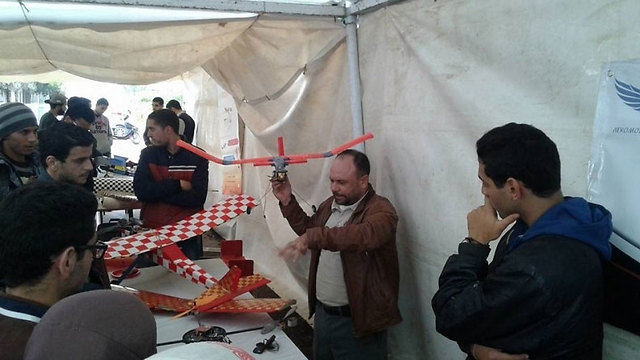
Mohammad al-Zawahri. The assassination's masterminds left a fingerprint
The message behind the Tunisia assassination
Analysis: Whoever killed Mohammad al-Zawahri likely wanted Hamas itself to expose the man’s activity in the organization and to blame the Mossad for the assassination in order to create deterrence.
Whoever assassinated Mohammad al-Zawahri in Tunisia wanted to convey a message, so they left a fingerprint.

Indeed, several hours after the assassination, Tunisia’s security authorities were already able to report that they had seized the assassins’ escape vehicles and found weapons and cellular phones inside.

According to the Tunisian press, al-Zawahri did not only specialize in UAVs but had also begun developing maritime robotic weapon systems
Whoever assassinated the man wanted everyone to know that he had ended his life in the city he was born in, with eight bullets stuck in his body. Moreover, the masterminds of the assassination likely wanted Hamas itself to expose al-Zawahri’s activity in the organization and to blame the Mossad for the assassination. The publication of these details is a deterrence component in the daily war on terror, which is taking place not just along the borders but also thousands of kilometers from Israel.
There are also quiet assassinations. It’s enough to remember the assassination attempt of Khaled Mashaal in Jordan, or the assassination of Mahmoud al-Mabhuoh in Dubai, both of whom were both supposed to die a “natural death” without any signs of violence. These cases made headlines because of the failure to keep the operations a secret. Al-Zawahri’s assassination is reminiscent of the assassination of Iranian scientists who were shot by gunmen on the streets. Those assassinations made it to the headlines very fast as well, and in those cases too an accusing finger was pointed at the Mossad.
According to the Tunisian press, there had been several attempts to warn the man and discourage him from continuing his activity in the terror organizations. The assassination was apparently the last way of stopping him. If there is any truth in the claim that Israel was behind the assassination, we can assume that whoever approved the operation – in other words, the highest political echelon – estimated that the assassination would stop the terror organizations from arming themselves with abilities that Israel considers a “red line.”
According to foreign reports, Israel is operating in Syria to thwart arms shipments to Hezbollah. According to the same reports, Israel operated in Sudan to stop the arms smuggling route to Hamas. If al-Zawahri was indeed a target for Israel, the potential of damage in his activity likely justified the risk involved in getting into trouble with Tunisia, a country which Israel would gladly nurture relations with.
The Tunisian press reported that the talented engineer did not only specialize in unmanned aerial vehicles, but had also begun developing maritime robotic weapon systems. If Hamas got hold of such an ability, it would endanger the Navy boats and oil drilling rigs, creating a very problematic threat to Israel.
Southern Command officers are saying that Israel’s deterrence component vis-à-vis Hamas is limited in time. There is an arms race taking place between the construction of the anti-tunnel obstacle that Israel is building along the Gaza Strip’s borders and Hamas’ intensive preparations for war.
So far, Hamas has completed the construction of nearly 100 kilometers (62 miles) of defensive tunnels. At the same time, it has been trying to rebuild almost all the offensive tunnel on the Israel border, which were destroyed in Operation Protective Edge, with a certain amount of success. The organization has significantly increased its underwater force, it is trying to restore and maintain its rocket abilities in the volumes and ranges it had in the past, and it has increased its special units – the Nukhba – to about 4,000 people. Meanwhile, Hamas is putting a lot of thought and efforts into the “surprise weapon,” which may undermine the Israeli morale and determination to fight. One of these plans is in the robotic area – both in the sea and in the air. The assassination of the Tunisian engineer could disrupt or at least delay Hamas’ arming activities in these areas.










